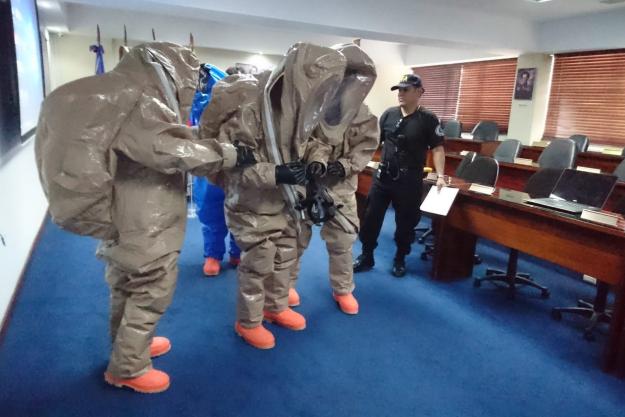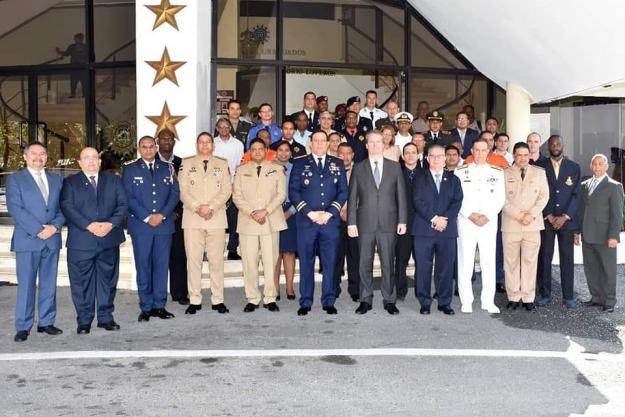
Participants at a regional table-top exercise on chemical emergency response for States Parties from Latin America and the Caribbean
THE HAGUE, Netherlands – 26 October 2018 — Thirty-three first responders advanced their skills in managing chemical emergencies at the regional table-top exercise on chemical emergency response for States Parties from Latin America and the Caribbean. The exercise was facilitated by the Organisation for the Prohibition of Chemical Weapons (OPCW) and held in Santo Domingo, Dominican Republic, from 15-19 October.
Vice Minister of Defence of the Dominican Republic, Major General Luis Napoleon Payan Díaz, stressed in his welcoming address the importance of maintaining readiness to effectively manage chemical emergencies, and highlighted the significance of international cooperation for the success of such operations.
OPCW’s Head of Assistance and Protection Branch, Mr Shawn DeCaluwe, underlined that table-top exercises are a cost-effective way of reinforcing emergency management skills. He further noted that, “This course will not only enhance technical skills critical to handling chemical emergencies, but also strengthen national and regional coordination networks”.
During the exercise, the participants responded to a simulated chemical warfare agent attack. They practised using the Incident Command System methodology – a standardised approach to the command, control, and coordination of emergency response widely applied in the region.
The course built on the competencies that the participants had gained during previous trainings provided by the OPCW, and was delivered by an international team of instructors trained by the OPCW.
The event was organised by the Dominican Republic’s Ministry of Defence, National Authority to the Chemical Weapons Convention and National Centre of Emergency Operations, in cooperation with the OPCW.
Participants came from 17 OPCW Member States: Argentina, Barbados, Brazil, Colombia, Costa Rica, Cuba, Dominican Republic, Ecuador, El Salvador, Grenada, Guatemala, Honduras, México, Panamá, Peru, Spain and Paraguay.

Participants at a regional table-top exercise on chemical emergency response for States Parties from Latin America and the Caribbean
Background
As the implementing body for the Chemical Weapons Convention, the OPCW, with its 193 Member States, oversees the global endeavour to permanently eliminate chemical weapons. Since the Convention’s entry into force in 1997, it is the most successful disarmament treaty eliminating an entire class of weapons of mass destruction.
Over 96% of all chemical weapon stockpiles declared by possessor States have been destroyed under OPCW verification. For its extensive efforts in eliminating chemical weapons, the OPCW received the 2013 Nobel Peace Prize.
